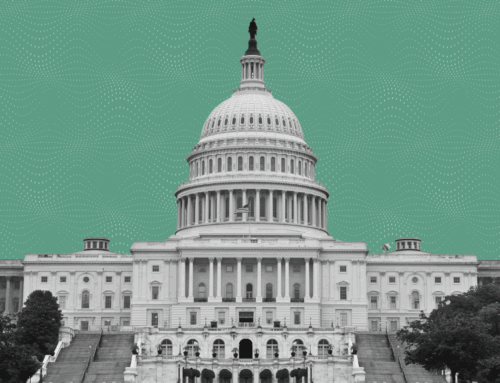Washington, D.C. – The Economic Innovation Group (EIG) applauds Senators Todd Young (R-IN) and Chris Murphy (D-CT) for introducing the bipartisan Workforce Mobility Act to reform the use of non-compete agreements by U.S. employers. Earlier this year, EIG released a report exploring the proliferation of non-compete and no-poach agreements and their detrimental effects on workers and the economy. John Lettieri, President and CEO of EIG, applauded the growing bipartisan consensus and urged Congress to quickly take up the Workforce Mobility Act to end the abuse of non-compete agreements.
“The widespread use of non-compete agreements harms the American economy by inhibiting worker mobility, depressing wage growth, impeding entrepreneurship, and stifling innovation,” said Lettieri. “The Workforce Mobility Act would be a major step in promoting a more open, competitive, and dynamic economy for all Americans. We applaud Senators Young and Murphy for their bipartisan leadership on this important issue.”
The Workforce Mobility Act addresses the abuse of non-compete agreements by limiting their legal use, requiring employers to notify employees of the limits of their application, and delegating appropriate enforcement and reporting responsibilities to the Federal Trade Commission and the U.S. Department of Labor. The legislation is supported by leading stakeholders committed to promoting a more dynamic U.S. economy.
“Building a 21st-century economy that works for all Americans requires worker empowerment, which requires mobility—the freedom to take a better job or to launch a new business,” said John Dearie, President of the Center for American Entrepreneurship (CAE). “By restricting the enforcement of non-compete agreements to only the most necessary of circumstances, the Workforce Mobility Act empowers American workers and promotes a more dynamic and entrepreneurial U.S. economy. CAE thanks Senator Todd Young (R-IN) and Chris Murphy (D-CT) for their leadership on this critical issue.”
“Non-compete agreements are unfair to workers, economically damaging for employers, and they undermine the efficient, effective functioning of labor markets everywhere,” said Eli Lehrer, President of the R Street Institute. “Anybody who cares about maintaining a functioning free market for workers and employers alike should oppose non-compete agreements.”
“Non-competes strengthen the power of corporate employers at the expense of millions of workers across America,” said Open Markets Institute Legal Director Sandeep Vaheesan. “These unfair contracts depress competition among employers for workers and reduce job market mobility, lowering wages and wage growth and impeding new business creation. Banning non-competes would restore a basic right for American workers—the right to leave for greener pastures. This is a huge step in advancing worker freedom, and we applaud Senators Murphy and Young for taking it.”
“American innovation depends on a talent pool of highly qualified scientists, engineers, product managers, and founders,” said Garrett Johnson, Co-founder and Executive Director of the Lincoln Network. “Unfortunately, non-competes unnecessarily stifle market forces in the talent market, keeping people from applying their skills to their highest and best uses. We’re excited to support this bipartisan reform effort, and look forward to it gaining traction in Congress.”
Non-competes cover one in five employees—approximately 32 million Americans. The use of non-competes has proliferated in recent years, even in jurisdictions where they are unenforceable, and for uncompensated workers, like interns and volunteers. By limiting job mobility, non-compete agreements restrict opportunities for wage growth. Several studies have concluded that workers in states that enforce non-compete agreements earn less than their counterparts in states that do not. Also, by consolidating the hiring power of large employers, non-compete and no-poach agreements restrict employee entrepreneurship, make it harder for new market entrants to compete with large incumbents, and make hiring more difficult for smaller firms. To learn more about the theory, empirical evidence, and recent reform efforts, read EIG’s issue brief authored by University of Maryland Professor Evan Starr: “The Use, Abuse, and Enforceability of Non-Compete and No-Poach Agreements.”
About the Economic Innovation Group (EIG)
The Economic Innovation Group (EIG) is a bipartisan ideas laboratory and advocacy organization whose mission is to advance solutions that empower entrepreneurs and investors to forge a more dynamic American economy. Headquartered in Washington, D.C., EIG convenes leading experts from the public and private sectors, produces original research, and works to advance creative legislative proposals that will bring new jobs, investment, and economic growth to communities across the nation. For more information, visit eig.org.
###






